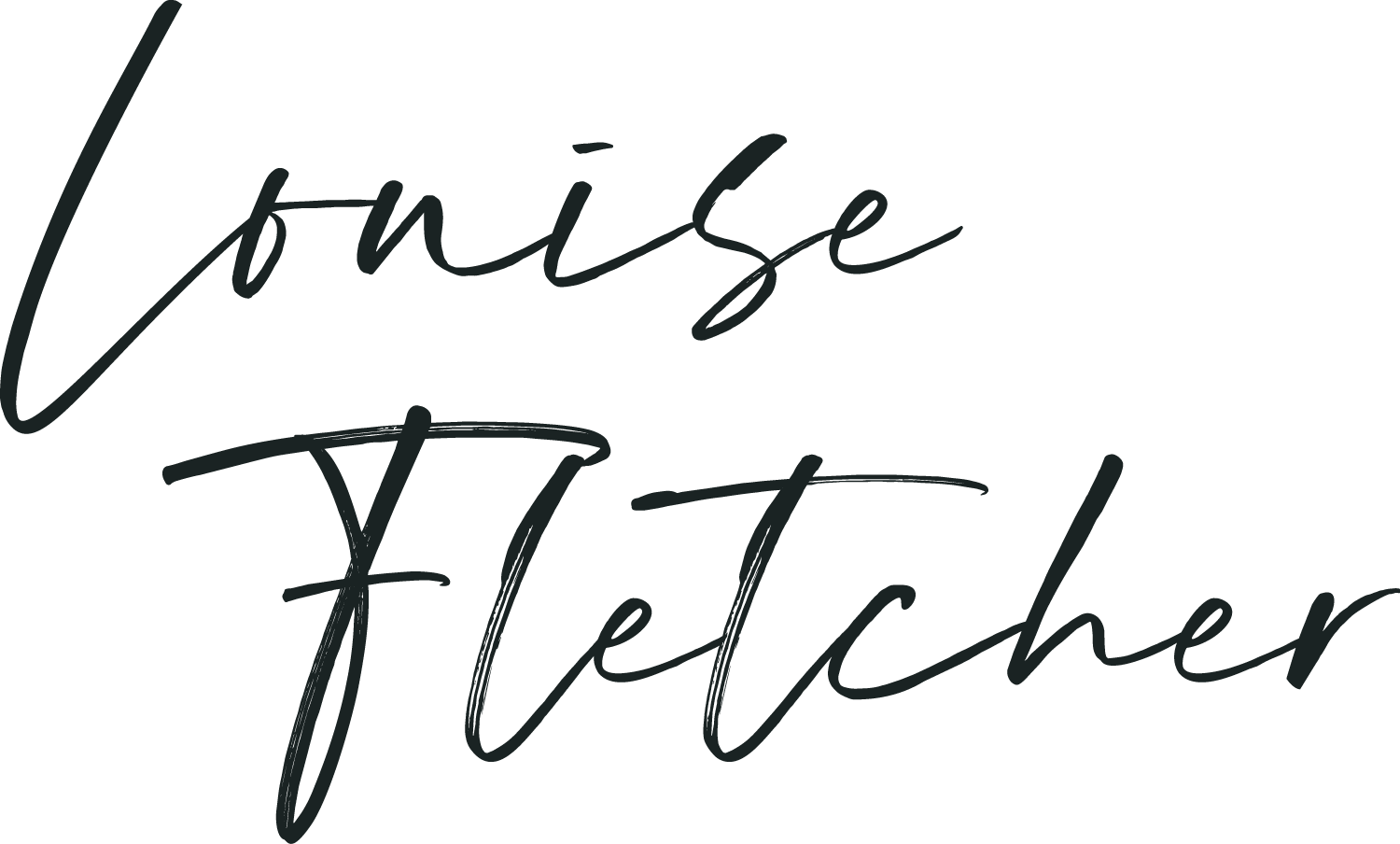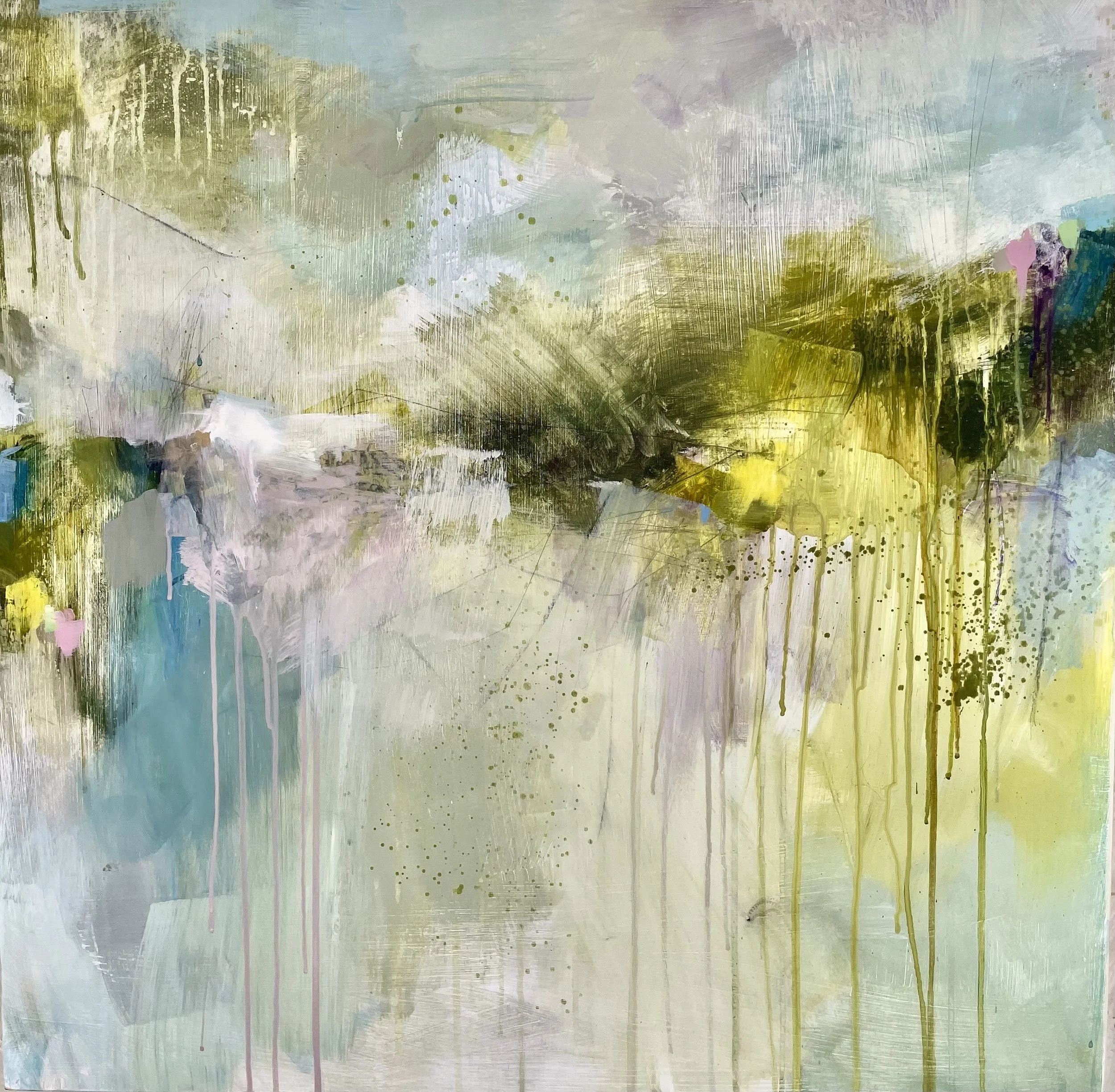What' your unique artist DNA?
Today, I want to talk about the beauty of imperfection and why it matters so much.
As artists, we often find ourselves chasing after an elusive idea of perfection. We have been programmed to try and do things 'right' in all parts of our life, so when it comes to painting, we often strive to eliminate flaws. But I think perfection is an illusion. I think it's a trap that stifles our creativity and leaves us feeling unfulfilled.
This week I made a beautiful abstract landscape painting - one that came about much more quickly than normal - and then I found myself fiddling and faffing and stripping the life out of the next two paintings I began. I was aiming for perfection, but actually the first one was beautiful because it wasn't perfect.
My imperfect painting
I think this illustrates the problem. I got caught up in the pursuit of perfection, and as result, I boxed myself in. I bet you know the feeling. When this happens, we become hesitant, afraid to take risks or explore new territories. In doing so, we unintentionally silence the voice within us that longs to be heard—the voice that sets us apart from the crowd.
I recently saw an old video of John Cleese talking about creativity and jotted down these sentences: "If you have ideas that you think are valuable, it's absolutely imperative that you get off the perfectionist kick. Because perfectionism will prevent you from making those mistakes which are the source of new ideas."
I think that last phrase is absolutely right. Mistakes are the source of new ideas and we can't make them if we're trying to get things "right."
I also think perfectionism robs us of the joy of artistic exploration and experimentation—the joy of making mistakes and discovering new possibilities. It also prevents us from seeing possibility in our "happy accidents." So often our mistakes are actually flashing signs, pointing us towards a new path. But we miss them if we quickly "fix" the mistakes and move on.
In truth, I think embracing imperfection paves the way for each of us to find our own authentic artistic voice. This is because when you embrace imperfections in your work, you're also embracing your real self. Your true essence shines through the quirks in your work, which means your imperfect brush strokes or unbalanced compositions might not be something to be covered over - they might actually be the markers of your unique artistic DNA.
I also think that mistakes lead to growth and learning. Each imperfection holds a lesson, an opportunity to refine our craft and evolve as artists. After all, we will never reach perfection, however hard we try. When we liberate ourselves from the pursuit of perfection, we create space for boundless creativity and innovation. Our minds are free to wander and, as a result, we give birth to our boldest and most original ideas.
Finally, I think that imperfection creates emotional connection. Imagine meeting the perfect person - she looks perfect, she speaks perfectly, she's dressed perfectly and her hair is amazing. Now, imagine approaching her for a casual conversation ... terrifying!
In truth, perfection is off-putting. Imperfections, on the other hand, possess a raw authenticity that connects deeply with others. We feel much more comfortable with an imperfect person, because we see them as relatable. It's the same with art - imperfections inject our paintings with emotion, vulnerability, and relatability— all ingredients that really help others to connect with our work.
So next week, I plan to go back to those fiddly, faffy 'trying-to-be-perfect' paintings. I plan to take some big risks. I plan to mess them up. I may even try actively to make them bad.
I invite you to do the same if this resonates. Let go of the pressure to be perfect and embrace the spontaneity, happy accidents, and idiosyncrasies that make your art uniquely yours. And don't just get this in theory - actually go and mess some things up. Find a few paintings that are just OK - ones where you have tried too hard - and then do something a little bit crazy on them. Try different techniques or colours or tools.
What's the worst that could happen? If your experiments don't work, you haven't lost anything. (the paintings weren't exciting to begin with!) But by trying new things, you open to the possibility that you'll have some fun or discover something new.
I don't know about you, but I'm looking forward to my next studio session!


